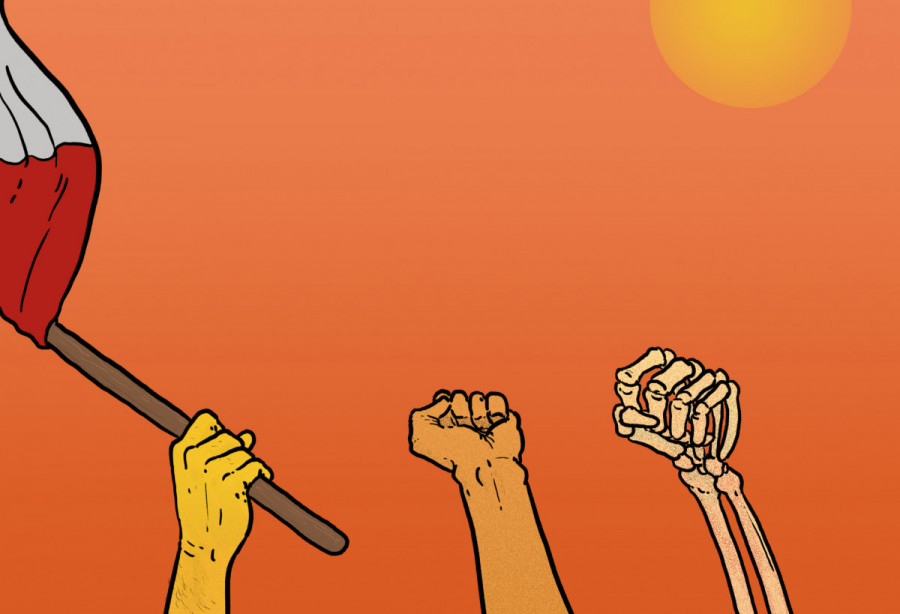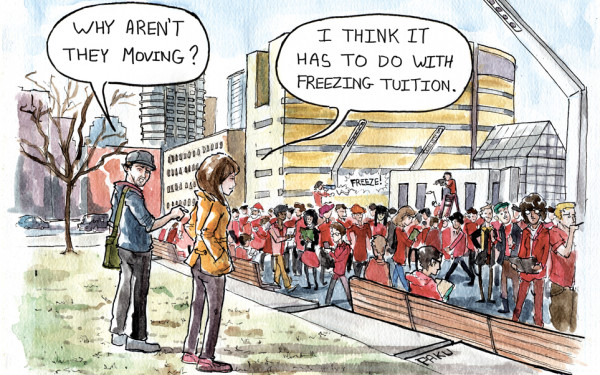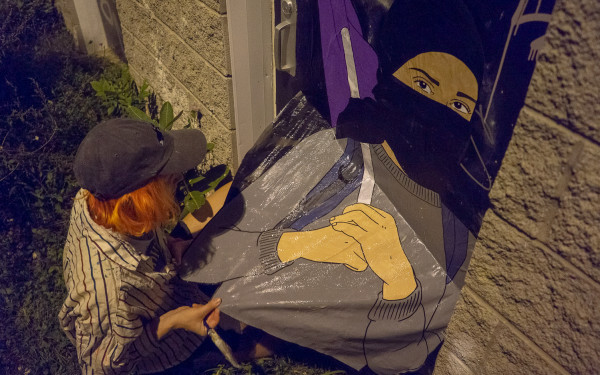La Rebelión comes at a cost
How political resistance in Latin America has been met with deadly violence
When my parents and older brother left Colombia before I was even born, my brother would listen to the news talking about our country as “the country of bombs.”
Drug dealers would refer to our country this way due to their political opposition to the Colombian government. He was confused and decided to ask my mother what country that was. In Colombian Spanish, bomba means both bomb and balloon, hence my mother decided to buy as many balloons as she could and filled his bedroom up with them. As she didn’t want him to associate his country solely with violence, she told him that his bedroom was the country of bombs.
A while ago, I was listening to La Rebelión, by Joe Arroyo, with a non-Latina friend. Without knowing what the lyrics were saying, she said that she loved the rhythm since it is so uplifting. The song talks about an enslaved African couple taken to Cartagena, Colombia, by Spanish colonizers around the 17th century. The juxtaposition of the rhythm and lyrics were surprising to my friend, and I realized in that exact moment that it serves to represent Latino culture.
Our countries have suffered unimaginable events, yet we have always found and created art as a form of cultural and political resistance. Historically, the problem with freedom of expression in Latin America is that protests end with rides to the hospital, police stations, or funerary planning.
Case in point: Dilan. In 2019, several protests were held all around Colombia to voice the people’s concerns with the economic and social policies implemented by the current government, the homicide of several social leaders, and the handling of the 2016 peace accord. Dilan Cruz Medina was just 18 years old when a member of the Colombian Mobile Anti-Disturbance Squadron killed him at a protest. Of course, the government and several news sources failed to mention that he was indeed killed as a result of police brutality.
Sources that remain truthful and trustworthy are scarce in Latin America, as political organizations tend to intervene in the news shown to the public. Several countries have had to resort to starting independent newspapers to avoid said intervention. Colombian activist groups report over 1,000 assassinations since 2016, although the official government statistic only recognizes 415. By October 2020, 223 human rights Colombian activists have been declared dead that year.
Aquí se respira lucha [here we breathe battle]
The number of activist assassinations in Colombia is increasingly concerning. The fact that activist groups' statistics do not coincide with the statistics outlined by the government shows that the state chooses what discourse will be hidden and what will be shared with the people. This is not only problematic because the state cannot be trusted but also because the uncertainty of knowing what happened or who murdered these activists is devastating for anyone who has lost a loved one this way.
State suppression, however, happens in many Latino countries. In 2019, the National Assembly of Panama attempted to reform the constitution to get away with modifying the national budget and granting deputies power to censor ministers, among other things. The people, including foreigners living in Panama (although they were later banned from protesting, as the government stated it could “affect their legal status in the country”), decided to protest against this event.
As a former resident of Panama, I was able to see pictures and videos taken by protestors that I personally know. When researching the subject, I read a headline saying, "Panama: Violent protests reported in Panama City October 30", yet social media told a different story. I saw pictures on Twitter that display people sitting on the floor and holding hands. There is a clear difference between what government-influenced media portray and what the people share.
Years of U.S. intervention in Latino nations have prolonged and worsened the economic and political crisis, acting like judges issuing penalties instead of assuming responsibility. We are denied visas, looked at and treated with disgust, and worse, we suffer in our countries due to their manipulation.
Latinos, however, are standing firm. Several countries have now implemented the use of this phrase in protest posters: "Mamá, me iré a luchar por [país respectivo], si no vuelvo, me fui con ella" [Mom, I'm going to go fight for [respective country], if I don't come back, I left with it] (Unknown author, n/a).
The number of assassinations is so elevated, it has gotten to the point where people are no longer surprised. Aquí se respira lucha [here we breathe battle], and we will until justice is found for Dilan Cruz (Colombia), Jairo Ortiz (Venezuela), Yoshua Osorio (Chile), Julio Llanos Rojas (Bolivia), Inti Sotelo (Peru), Ángel Gahona (Nicaragua), and every single soul that has been lost while fighting.
This article originally appeared in The Resistance Issue, published April 13, 2021.






_600_375_90_s_c1.jpg)
